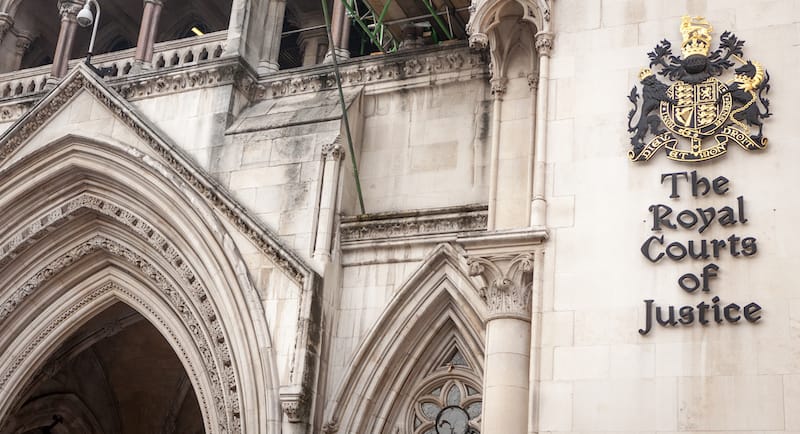KCL senior lecturer Anil Balan analyses the Court of Appeal’s recent decision

The Court of Appeal’s recent decision in Ntzegkoutanis v Kimionis [2023] EWCA Civ 1480 offers a beacon of hope for minority shareholders fighting against unfair prejudice within their companies.
This case revolves around the powerful “unfair prejudice” petition under section 994 of the Companies Act 2006 (CA 2006), a tool for minority shareholders to seek redress when their interests are unfairly disregarded. The Court of Appeal judgment clarifies the scope of remedies available and sets a valuable precedent for protecting minority rights.
The ‘unfair prejudice’ petition
The “unfair prejudice” petition under section 994 and derivative claims under 260 of the CA 2006 both aim to protect the interests of minority shareholders in UK companies. Section 994 deals with claims by shareholders against the company for conducting its affairs in a manner that is unfairly prejudicial to them. On the other hand, section 260 deals with derivative claims brought by shareholders on behalf of the company against third parties for past wrongs done to the company.
Section 994 is often the preferred remedy for shareholders, as it prioritises the petitioner’s individual interests, while section 260 prioritises the company’s overall wellbeing. Section 994 also offers a wider range of remedies, including restructuring or winding up, while section 260 is generally restricted to financial redress or preventative measures.
The scenario:
Mr. Ntzegkoutanis, a minority shareholder in Coinomi Limited, alleged that Mr. Kimionis, the majority shareholder and director, had misappropriated company assets and excluded him from management. Mr. Ntzegkoutanis filed an unfair prejudice petition under section 994 of the CA 2006, seeking the following remedies:
• Reconstitution of misappropriated assets: He wanted the court to order the return of assets allegedly taken by Mr. Kimionis.
• Damages for the company: He also sought compensation for the financial losses suffered by Coinomi Ltd.
• Other relief for himself as a shareholder.
The controversy
Kimionis contended that Ntzegkoutanis’s petition was abusive and should be struck out, arguing that seeking relief for the company constituted an improper attempt to use unfair prejudice remedies for personal gain. He claimed that Ntzegkoutanis should have pursued a derivative claim on behalf of the company rather than his own petition.
Want to write for the Legal Cheek Journal?
Find out moreThe Court’s Ruling
The Court of Appeal dismissed Kimionis’s argument and upheld Ntzegkoutanis’s petition. They recognised the following key points:
• Genuine interest in company redress: The Court acknowledged that Ntzegkoutanis had a genuine interest in seeking reconstitution of assets and damages for Coinomi as it directly affected his own value as a shareholder.
• Personal right as a shareholder: The Court emphasised that Ntzegkoutanis was exercising his personal right as a member of the company to seek redress under section 994. He was not acting on behalf of the company itself, but rather protecting his own interests as a minority shareholder unfairly impacted by Kimionis’s actions. His petition therefore did not constitute an abuse of the s.994 process.
• Access to remedies: While derivative claims exist, minority shareholders are not limited to them and can seek relief for the company within their own unfair prejudice petitions when their personal interests are genuinely linked to the company’s well-being.
The significance
Ntzegkoutanis v Kimionis strengthens the protection of minority shareholders in several ways:
• Clearer access to unfair prejudice remedies: The case clarifies that minority shareholders can seek the return of misappropriated assets and damages for the company as part of their unfair prejudice petition, provided they have a genuine interest in these outcomes. It also widens the range of available remedies for minority shareholders facing unfair prejudice, allowing them to seek direct redress for harm to the company that impacts their own share value.
• Strengthens minority rights: This decision empowers minority shareholders to act as guardians of the company’s interests when majority shareholders misbehave, providing a valuable tool for holding them accountable. It also reinforces the principle that majority shareholders must act in the best interests of the company, not just themselves.
• Clarifies legal boundaries: The court’s clear distinction between personal claims and actions benefiting the company sets a framework for future cases, preventing abuse of the unfair prejudice process while ensuring genuine grievances are addressed. This ruling recognises that unfair prejudice petitions offer a valuable alternative to derivative actions, particularly in situations where initiating a formal derivative claim may be challenging or impractical.
Conclusion
Ntzegkoutanis v Kimionis stands as a landmark decision for minority shareholder protection. It reaffirms the power of unfair prejudice petitions and provides a clearer path for minority shareholders to seek remedies when their interests are unfairly prejudiced. This case serves as a reminder that even in complex corporate situations, minority voices deserve to be heard and their rights protected.
Anil Balan is a senior lecturer in professional legal education at the Dickson Poon School of Law, King’s College London.


